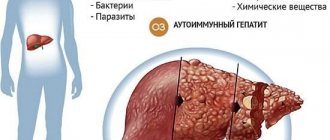Glossalgia is a disease that consists of the appearance of pain and a burning sensation of the tongue in the absence of obvious causes and other clinical manifestations on the mucous membranes. Sometimes similar symptoms spread to the lips, palate or the entire oral mucosa. Middle-aged and elderly women are more often susceptible to this disease; in men it is several times less common.
Unlike other diseases, with glossalgia there are no organic causes of pain. Despite the fact that patients often note the development of pain after injuries, the latter can only act as a trigger factor. The disease should be distinguished from glossitis, an inflammatory disease in which, in addition to pain and burning, external changes in the mucous membranes are observed: redness, ulceration, pronounced plaque, etc.
Causes of glossalgia
Many patients with glossalgia associate the appearance of the symptom with trauma to the tongue from sharp edges of fillings or teeth with chipped enamel, as well as incorrectly installed crowns and dentures. More often, the disease appears after disorders of the autonomic nervous system. As the disease progresses, it becomes chronic.
This is a functional disorder that has no organic causes. Researchers associate its appearance with diseases of the gastrointestinal tract. Most often there is a combination of disorders of the nervous system, vascular lesions and diseases of the digestive system. A stimulating factor can be diseases that lead to a decrease in tissue sensitivity or change the response to mechanical stimuli.
Glossalgia can also develop against the background of the following diseases:
- ischemic and hemorrhagic stroke;
- encephalitis of any origin;
- neurosyphilis.
Aggravating factors may include hypovitaminosis, lack of iron, minerals, endocrine diseases, infections and autoimmune pathologies. The disease is also affected by taking certain medications - chemotherapy drugs, antihistamines, etc.
Research shows that the disease may be one of the signs of viscero-reflex bulbar syndrome, which affects the vagus and glossopharyngeal nerves. Disturbances in the transmission of nerve impulses cause glossalgia, as they lead to the appearance of false sensations. And external irritants can only intensify the symptom, which explains the high incidence of the disease in people with dentures and crowns.
Ask a Question
Why does tongue paresthesia occur?
The main reasons that provoke numbness of the tongue include the negative influence of external factors and diseases, one of the symptoms of which is paresthesia. External factors include: excessive smoking, allergic reactions to foods and medications, injuries, injuries, burns, intoxication.
The tongue goes numb with the following diseases:
- A decrease in the sensitivity of the tongue may mean that a person has malignant tumors in the larynx or in the brain. This condition in neoplasms is not the main symptom; paresthesia accompanies severe headaches (in the case of brain cancer), nausea, low temperature and blood pressure. Oncological diseases of the larynx, in addition to numbness, are manifested by pain in the throat (as with ARVI), impaired sensitivity of the palate, unpleasant sensations and difficulties when swallowing.
- The tongue may become numb due to an incipient stroke or heart attack.
With this condition, paresthesia of the hands, tongue and lips is one of the main symptoms. Additional symptoms include acute headache, dizziness, nausea and vomiting.
- Osteochondrosis of the cervical spine can cause impaired mobility, damage and numbness of the nerve endings of the tongue. Osteochondrosis may cause pain and dizziness.
- Violation of the psycho-emotional background. Severe stress and deep depression can provoke severe headaches, impaired sensitivity of the face, lips, and mucous membranes of the oral cavity. Psycho-emotional disorders are the cause of migraine with aura - a disease in which the head hurts severely and the functioning of the senses is disrupted.
- If the tip of the tongue becomes numb and hurts, a burning or tingling sensation occurs, it means that the person has developed glossalgia or glossitis.
Manifestation of different forms of glossitis of the tongue
- Diabetes mellitus, which occurs as a result of impaired insulin production, leads to a feeling of thirst, dry mouth, and partial loss of tongue sensitivity.
- Anemia can cause decreased sensitivity of the oral mucosa, numbness of the extremities, low temperature, pale skin, and poor coordination.
- Age-related changes. A woman during menopause experiences hormonal imbalances that can cause tongue numbness.
- Oral candidiasis is a disease that is accompanied by pain, plaque formation on the mucous membranes, itching, swelling and partial numbness of the tongue.
- Impaired functioning of the facial nerves (Bell's palsy). The pathology is expressed in partial paresthesia.
Paresthesia can be caused by transformations that occur in the body of a pregnant woman.
Manifestations of glossalgia
With this disease, patients note a burning sensation, tingling, itching, and rawness in the tongue area. An unpleasant symptom may appear from time to time or bother you constantly. Some patients associate these symptoms with eating spicy foods.
Indirect symptoms include dry mouth and fatigue when speaking. It is worth noting that with overwork and nervous excitement, the symptoms become more pronounced. Sometimes the symptoms of glossalgia appear only in certain situations, for example, before an important event. During meals, manifestations of the disease may become less pronounced or even completely absent.
The feeling of burning and tingling most often spreads to the sides and tip of the tongue. They occur much less frequently on the back and root of the tongue. The pain is widespread, there is no obvious focus, and the location can change quickly. The symptom may disappear and appear in another area.
It is important to note that there are no visible changes in the mucous membrane of the tongue and oral cavity. Only some people suffering from this disease may experience swelling or plaque on the tongue, hypertrophy of the lingual papillae. Varicose veins of the tongue are typical for elderly patients.
Many people with glossalgia experience symptoms of depression. Sometimes there is excitability, increased anxiety, and suspiciousness. Many people suffer from fear of developing cancer and other serious diseases, and the disease is accompanied by sleep disturbances, pain in the chest area, etc.
How to tell if you have dystonia
People who live with vegetative-vascular dystonia for quite a long time get used to their symptoms if they do not manifest themselves as crises and do not disrupt the normal course of life.
They learn to live with headaches, endure periodic numbness in their arms or legs, sometimes suffer from rapid heartbeat, and know that when the weather changes, they may experience insomnia. The rest of the time, VSD does not make itself felt and does not cause life-threatening conditions. But some manifestations of dystonia feel truly scary. A lump in the throat and a feeling of lack of air, palpitations and fear during panic attacks, sudden loss of consciousness, pressure changes. If after such an incident you were examined and no dangerous diseases were found, then with a high probability we can talk about VSD.
Numbness of the limbs with dystonia is usually associated with an unpleasant experience. Such a reaction of the body can occur even in anticipation of a pleasant event, from an excess of emotions.
Possible complications
This disease does not threaten health, but significantly reduces the quality of life. If you ignore an unpleasant symptom, glossalgia can become chronic. Its symptoms will occur from time to time, exacerbating the unstable psycho-emotional state. Against the background of pain, anxiety, eating disorders, sleep disorders, nervousness, and phobias can develop. As the condition worsens, treatment should be carried out not only by the dentist, but also by other specialists - a neurologist, psychiatrist or psychotherapist.
A long-lasting symptom can cause forced dietary restrictions, which can affect the overall health and cause vitamin deficiencies, weight loss, and lack of minerals.
Possible complications include inflammatory diseases of the oral cavity. For example, a lack of saliva can lead to aphthous stomatitis, and when exposed to adverse factors or injuries, the likelihood of glossitis, gingivitis and other ailments increases.
Which doctor should I contact?
If your tongue becomes numb, you should consult a dentist, family doctor or therapist. Once diagnosed, treatment is aimed at eliminating the cause of paresthesia. You may need help with this:
- cardiologist
- gastroenterologist
- surgeon
- endocrinologist
- neurologist
Further therapy depends on the diagnosis and doctor's prescription. It may include taking vitamins, medications, physiotherapy, massage, or surgery.
Diagnostic features
It is important to distinguish glossalgia from organic diseases of the tongue that develop as a result of injuries, neuralgia and neuritis. The doctor will also make sure that there are no bite defects. The main diagnostic criterion for glossalgia is the discrepancy between the sensations of the intensity of the impact. In addition, visible changes in the tongue and mucous membranes are almost completely absent.
In case of injuries, the pain has a clear localization and does not spread beyond the boundaries of the lesion. With neuralgia, sensations occur briefly in the area of innervation of the nerve. With neuritis, pain most often appears only on one side, and is also accompanied by sensory disturbances.
What will help restore sensitivity?
If during VSD your arms or legs are numb, you feel chills - take a hot shower, put on socks, wrap yourself in a warm blanket.
A hot drink will not only warm you up, but also activate reflex mechanisms that will return normal sensitivity to your limbs.
If numbness occurs after stress, take a sedative and try to sleep. For vegetative-vascular dystonia, Glycine is the best choice. Unlike herbal preparations, it will improve metabolism in nervous tissue at the cellular level and help recover from stress.
The combination of glutamic acid, glycine and cystine in Eltacin® helps to gradually bring dystonia under control and reduce the frequency of all symptoms. We recommend taking it in courses, as well as if your arms, legs or tongue become suddenly numb. After two or three courses of amino acids, manifestations of VSD will bother you less and less often, including sensory disturbances.
Treatment methods
Treatment of glossalgia begins with sanitation of the oral cavity: the doctor will prescribe treatment for caries, replacement of incorrectly installed dentures, as well as replacement of fillings that have expired. Making new dentures allows you to create the correct bite height. Also, at the same time, it is necessary to visit other specialists of a narrow profile - a neurologist, endocrinologist, psychotherapist, etc.
The main treatment tactic is to influence the links of the pain symptom. So, the doctor may prescribe bromine, iron, tranquilizers, and sedatives. B vitamins and lingual nerve blocks may be recommended to help restore normal function.
If the mucous membranes are dry and there is insufficient salivation, the doctor will prescribe a vitamin A solution or another product to moisturize and stimulate saliva production.
Reflexology and physiotherapeutic methods can be used as an addition to the main course of treatment. If suspiciousness, increased anxiety, or depression are present, then working with a psychotherapist is indicated.
General recommendations include the following:
- A gentle diet - eating soft foods, avoiding sour, salty, fatty foods, spices and seasonings.
- Normalization of neurological status if necessary. As prescribed by a neurologist or psychiatrist, you can take antidepressants, anti-anxiety medications, nootropics, and drugs to improve sleep.
- Psychotherapy according to indications. In some cases, good results can be achieved with the help of short-term or long-term psychotherapy.
It is important to be attentive to your psycho-emotional state. Relaxation methods, development of stress resistance, and breathing exercises may be recommended to bring the psychological state into balance.









